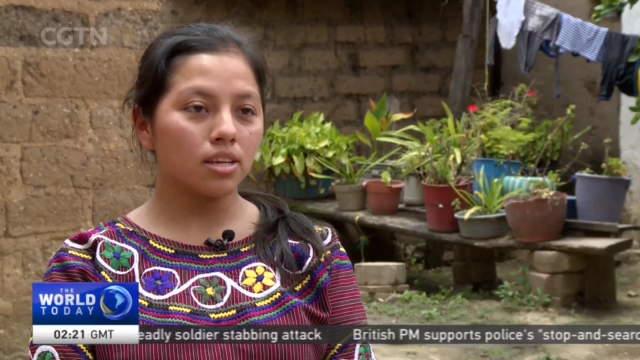
11:16, 11-Aug-2019
Guatemala Presidential Election: Voters head to the polls on Sunday
Updated
11:34, 11-Aug-2019

Voters in Central America's most populous nation, Guatemala, will elect a new president on Sunday, in a second and final round of elections. Two candidates are vying for the country's top job. CGTN's Franc Contreras reports from Guatemala City.
Sixty-three-year-old Sandra Torres is making her third run for the top office in Guatemala. The former first lady - who married and divorced former President Alvaro Colom, promises health and education reforms. She has switched her position from supporting abortion and same-sex marriage rights to opposing them.
SANDRA TORRES GUATEMALAN PRESIDENTIAL CANDIDATE "Look at us. We are a people with principles and values which we protect. For that reason, we are completely against same-sex marriages among men and women. We are against abortion. We are against immoralities that flood our society."
The other contender is Alejandro Giammattei, also 63. In 2006, he was the director of Guatemala's penitentiary system. Giammattei is making his fourth run for the presidency. He positions himself even further to the right of Torres.
ALEJANDRO GIAMMATTEI GUATEMALAN PRESIDENTIAL CANDIDATE "We're going for a government that is capable, honest and transparent. One that will eliminate the terrible and disgusting problem of corruption."
Corruption is one of the top issues on voters' minds in Guatemala. Both of the leading candidates have faced criminal charges. Giammattei faced charges of ordering extra-judicial murders of prisoners when he ran the country's jails. A judge acquitted him, but the public was left with the perception that the judge was paid off.
Sandra Torres faced charges of receiving illegal campaign financing. But in Guatemala, presidential candidates are immune from prosecution.
Wide-spread accusations of wrong-doing have disheartened the electorate here, many who are facing poverty and unemployment.
FRANC CONTRERAS GUATEMALA CITY "For Guatemalan voters, this election is about repairing institutions of government, which many see as deeply corrupted and at the service of just a few elites."
A large number of voters in rural Guatemala are also expressing doubts that this election will bring much-needed changes - including better pay and more opportunities for the poor. According to the United Nations, a staggering 83 percent of Guatemalans live in extreme poverty.
Forty percent of the population is indigenous. Many of them are Mayan people, who placed their hopes in an indigenous candidate, Thelma Cabrera. She reached fourth-place but was eliminated in a crowded first-round of voting.
MARI CRUZ TZANTZIR MIGRANTS' RIGHTS ADVOCATE "It is very important that a Mayan woman was a candidate for the presidency. Many complained she does not speak Spanish very well. But they are highly educated people who have done nothing for us. The message Thelma Cabrera gave us is that she would be a candidate for indigenous people."
So, a tone of skepticism hangs over this troubled Central American nation, where a lack of opportunities has led tens of thousands to emigrate - an issue that neither one of the candidates has addressed. Franc Contreras, CGTN, Guatemala City.
SITEMAP
Copyright © 2018 CGTN. Beijing ICP prepared NO.16065310-3
Copyright © 2018 CGTN. Beijing ICP prepared NO.16065310-3